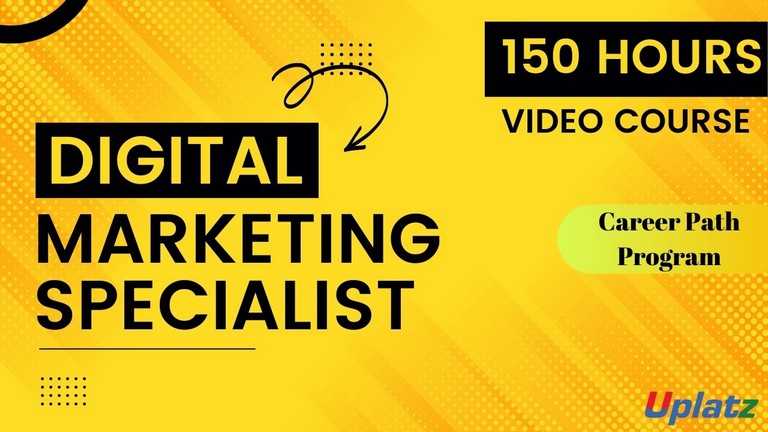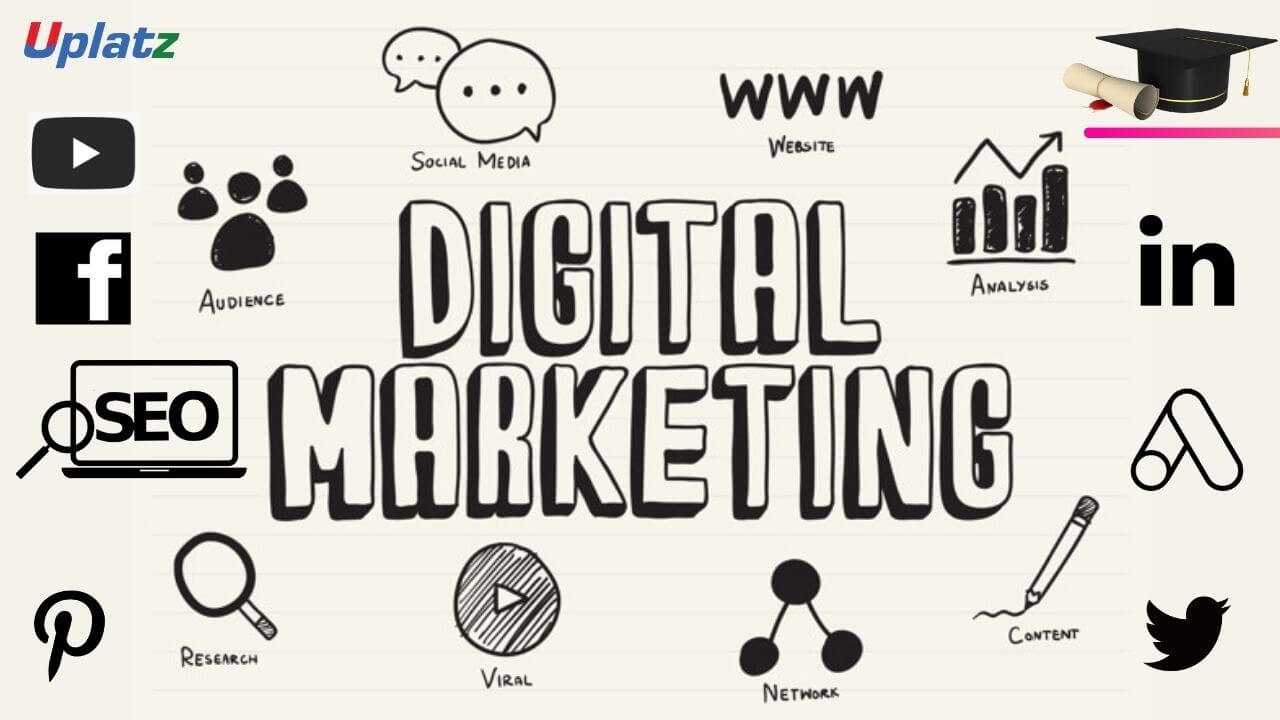Fundamentals of Marketing
Learn the core elements of marketing in this course.Preview Fundamentals of Marketing course
View Course Curriculum Price Match Guarantee Full Lifetime Access Access on any Device Technical Support Secure Checkout Course Completion Certificate 80% Started a new career
BUY THIS COURSE (
80% Started a new career
BUY THIS COURSE (GBP 12 GBP 29 )-
 89% Got a pay increase and promotion
89% Got a pay increase and promotion
Students also bought -
-

- Career Path - Digital Marketing Specialist
- 150 Hours
- GBP 32
- 1680 Learners
-

- Bundle Course - Data Analysis with MS Excel & Google Sheets
- 10 Hours
- GBP 22
- 3775 Learners
-

- Professional Diploma in Digital Marketing
- 50 Hours
- GBP 132
- 2378 Learners

Marketing is to satisfy the needs and wants of people. Marketing consists of all the activities of individuals and organizations designed to identify, anticipate, and mutually satisfy the needs of all parties involved in the exchange.
Marketing is also done to make sure one creates a market offering. Market offering refers to a complete offer for a product or service, having given features of the product. The process of marketing involves the exchange of products and services for money.
The four marketing utilities, which are the capacities of the product offering to satisfy the needs of a customer, are enhanced when exchange occurs.
Form Utility: The product is produced, or modified for the customer.
Time Utility: The consumer's ability to buy the product when he or she wants to buy the product. A grocer may store certain amounts of certain foods until the prime season they are bought.
Place Utility: This describes when a consumer is able to buy the product at a location that is convenient for them.
Possession Utility: Ownership of the product is transferred from the marketer to the buyer.
In this Fundamentals of Marketing course by Uplatz you will understand what marketing is and how it is different from sales. You'll learn how to speak authoritatively about the elements of marketing and branding, build a customer journey from discovery to purchase. In this marketing course, you will grasp the basics of marketing, and how to think, sound and act like a marketer. If Marketing is your desired field, you should be more employable and valuable as a marketer.
This Fundamentals of Marketing course will help you learn the core elements of marketing. Some of the key objectives of this course are:
1) What marketing is and what it means to be a marketer
2) Branding and how to create a brand architecture
3) How to create a buyer persona
4) How to create campaigns towards your buying personas
5) Understanding the customer journey
Course/Topic - Fundamentals of Marketing - all lectures
-
In this session we will learn about the basic topics of marketing. This video talks about the need – wants – demand and desire concepts in marketing. Further we will learn about the marketing mix and 4ps of marketing – product, price, place, promotion.
-
In this session we will learn about the marketing models. In this vide we will talk about the marketing models – STP (Segmentation, Targeting and Positioning) which is one of the most popular model of marketing. Further we will see what is STP and how does segmentation help.
-
In this session we will talk about the other marketing model i.e., Push and Pull. This video talk about what is push marketing and what is pull marketing. Further we will see the inbound and outbound marketing.
-
In this session we will learn about the marketing model called AIDA – Attention, interest, desire and action. This video explains about the AIDA funnel marketing in further tutorial.
-
In this session we will learn about the SWAT model of marketing. This model is used across business from a long time. This model works on the basis of identifying strengths, weaknesses, opportunities and threats.
-
In this session we will learn about the Golden Circle marketing model. This video talks about the what, how and why of marketing strategies applied by companies.
-
In this session we will learn about the Circle of marketing – marketing model. The circle of marketing model depends upon many factors such as product, support, usability, community, tribe, price, story etc.
1) Customer Relationships
2) Company & Marketing Strategy
3) Understanding Marketplace & Consumers
4) Marketing Environment:Micro Environment, Macro Environment
5) Marketing Information: Intelligence, Research objectives & plan
6) Consumer Buyer Behavior: Cultural, Social, personal & Psychological
Fundamentals of Marketing - Course Syllabus
1) Introduction to Marketing
2) Companies and the Market Environment
3) Buyer Behavior
4) Marketing Strategies I
5) Marketing Strategies II
6) International Marketing
7) Market Research I
8) Market Research II
9) Product Policy I
10) Product Policy II
11) Market Crisis
12) Distribution Policy
13) Communication Policy
14) Price Policy
15) Marketing-Mix
A graduate certificate in marketing offers a concentrated graduate-level path to enhance your professional marketing expertise. Certificate programs provide you with the core technical, strategic, and analytical skills to understand industry trends and make decisions effectively in modern marketing contexts.
Get an industry recognized, Uplatz issued certificate after course completion of Fundamentals of Digital Marketing.
Marketing is used in every company, every industry, so career potential is unlimited. There are career tracks in marketing that you can follow.
Companies have ongoing needs for marketing experts who can develop sales and advertising strategies, solve complex problems, and generate new ideas to promote products and services. While many marketing professionals obtain a degree in business with a marketing major, it’s not the only way into the field.
A person working in Marketing in United States typically earns around 106,000 USD per year. Salaries range from 49,300 USD (lowest average) to 176,000 USD (highest average, actual maximum salary is higher).
Job Titles:
• Chief marketing officer.
• Director of marketing.
• Marketing analyst.
• Marketing coordinator.
• Marketing consultant.
• Marketing manager.
• Marketing and promotions manager.
• Marketing specialist.
Q1. What are the 8 Ps of marketing?
Ans. The 8 Ps of marketing are – product, place and time, price, promotion, process, physical environment, people, and productivity and quality.
After naming the 8 Ps you must also talk about how the 8 Ps helps in:
· Developing and executing a successful marketing plan
· Dramatically changing the overall marketing strategy
· Defining your brand message
· Outlining your marketing process
Also, you can share your professional experiences about how you identified your marketing mix, target audience, sales goals, etc.
Further, you can also introduce the 4Cs of the marketing mix here which are – Consumer, Cost, Convenience, and Communication. Doing this is essential as these 4Cs are now a crucial part of the modern-day digital marketing mix and also show that the business world is more focused on a customer-driven approach.
To make this marketing interview answer impressive, you can highlight how there were 4 Ps of marketing before and how it evolved over time.
Q2. What is your expertise – B2B or B2C?
Ans. This marketing interview question can be tricky to answer if it is for a B2B profile and you have only worked in a B2C profile. That’s why you must be sure to show how you can transfer your skills in that area to the current situation. Also, the basic marketing strategies in both domains remains the same, but below are some of the common difference that every marketer must know:
|
B2C Marketing |
B2B Marketing |
|
Large scale market and bigger target audience |
Niche markets and smaller target audience |
|
Generally, the target audience is driven by emotions |
Most of the times the target audience is rationally-driven |
|
Generally, the goal is to strengthen transactional relationships with the customers |
Generally, the goal is to strengthen long-term business relationships |
|
The goal is to reach the end-users |
The goal is to convince all the decision-makers and dedicated business group |
Q3. Name 5 essential elements of a marketing campaign.
Ans. The five essential elements of a successful marketing campaign are:
· Target
· Value proposition
· Call-to-action message
· Delivery method
· Follow-up
Here, you can talk about the marketing campaigns that you have directly managed and individually define the strategies you have used for these five marketing campaign elements.
Q4. What are the marketing channels that you have experience working in?
Ans. This marketing interview question is to test your knowledge of the marketing channels that you have worked with. So, do not just mention the channels but describe how you used them to deliver successful marketing campaigns.
For example, if you have hands-on experience of using email marketing channels, you can talk about how you finalized the target audience, designed the template, planned the offer, drafted the communication message, etc. Also, talk about the open rates, CTRs, that you managed to achieve.
Q5. Why do you need to create a customer journey map?
Ans. This is an important marketing interview question that is based on your experience as a professional. In marketing, the customer journey map highlights how the user buys the product. For marketers, creating a customer journey involves understanding the buyer persona, his/her needs from a product/service, potential pain points while buying a product, etc. After creating this map, marketers can resolve any issues and make customers trust the product/service.
Q6. Are you familiar with any analytics platform? What are the platforms that you used in your previous job?
Ans. Mention the platforms that you have worked with and how it has helped in your marketing plans.
For instance, you can talk about how you use Google Analytics to track and monitor your website’s traffic.
Q7. Can you give us a customer trend that is happening in our industry right now?
Ans. This shows how prepared you are for the interview. Before going for the interview, go through the industry news and understand what are the current trends and customer insights.
Q8. How did you measure the impact of a successful campaign for a product that you marketed?
Ans. Describe the metrics that you fixed before starting the campaign and how you measured those metrics. Explain how you analyzed those metrics and turned them into meaningful patterns that showed the impact.
Q9. What can be the best approach to increase website traffic?
Ans. We can achieve this in various ways –
1. Ensuring good user experience
2. Building referral traffic
3. Performing on-page SEO
4. Targeting long-tail keywords
5. Using landing pages
Q10. What are some useful digital marketing tools?
Ans. There are a range of free digital marketing tools available to streamline the everyday management of a website, including –
1. Google Analytics
2. Google Keyword Planner
3. Google Search Console
4. Alexa
5. Rank Watch
6. Kissmetrics
7. SEMrush
8. HootSuite
9. MailChimp
10. BuzzSumo
11. Moz Learning Center
12. Ubersuggest
Q11. What are the limitations of online marketing?
Ans. There are certain limitations of online marketing. Some of the common ones are below.
· Online marketing requires money
· Chances of cyberattacks prevail
· Requires time to generate results, especially with SEO
· Takes time to build trust as compared to conventional marketing
Q12. What is Google AdWords Remarketing?
Ans. Google AdWords Remarketing is a Google service, allowing companies and brands to target an audience that has already visited the given website. This is a methodology to drive traffic to the website and convert visitors into consumers.
Q13. What is a responsive website?
Ans. A website that offers an optimal viewing experience to the user with easy navigation and reading is a responsive website. It is created using responsive web design (RWD) and is compatible with the most popularly used web browsers and mobile devices.
Q14. Do you have any idea about AMP?
Ans. AMP is the abbreviation for Accelerated Mobile Pages. It is a joint project of Google and Twitter for making fast mobile pages. It is an open-source initiative, which is lightweight and fast to load.
Q15. What is Keyword Streaming?
Ans. Keyword streaming is a popular SEO methodology that is used to draw extraordinary traffic to websites. In this method, popular keywords are further optimized to maximize the reach.









